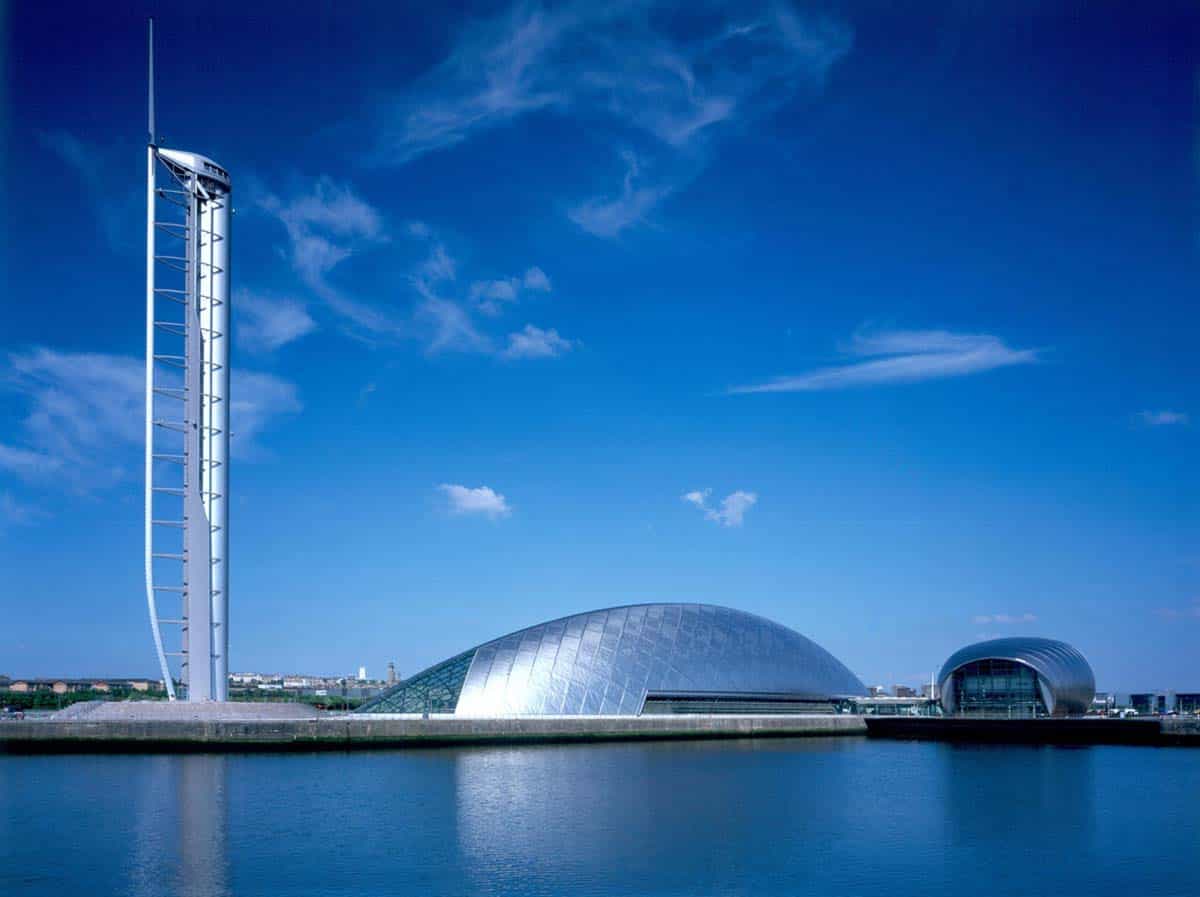
Glasgow started out as a fording point along the River Clyde, as settlement founded before recorded history and intermittently abandoned amid wars and plagues. Its importance has always hinged on the water, though, and the modern-day iteration of Glasgow built its nationally leading economy on the back of the ship-building and cargo shipping industries, along with general manufacturing. Today, its shipyards are increasingly idle and the port sees falling revenue, but this isn't totally unusually; after the decline of the city's locomotive manufacturing sector, ship-building came in to save the day. The city realized that it needed to look for a new future, and it has found one, partially, in tourism.
Glasgow recently invested in a number of projects that are seen as overt requests for increased tourism. Glasgow Tower is Scotland's tallest tower and one of the tallest in the UK, and it forms part of the newly expanded Glasgow Science Center. The Center itself is a major attraction, with an IMAX theatre to deliver world-leading cinematic educational experiences. Between structures and attractions, deals and infrastructure, there is quite a bit of money being thrown into making Glasgow a more viable tourist destination - and as Scotland's biggest economy, that's not too surprising.
Another legacy business in Glasgow, one that is seeing a modest comeback and a real boom in tourist interest, is tobacco. The "Tobacco Lords" of Glasgow made a fortune selling the dried leaf to the British colonies in America, but the American Revolution put a swift end to that. As tobacco use continues to decline in the West, tobacco's image is slowly becoming similar to whiskey or other harsh, cultured substances to be enjoyed in small doses. It is associated with slippers, leather wing-backed chairs and lovingly carved wooden pipes.
Today, Glaswegian smoke shops are among the best in the world, many of them legacy establishments protected under municipal heritage laws. These traditional British hole-in-the-wall shops pack an incredible amount of product and character into cramped little retail spaces, and they sell some really unique pieces of smoking paraphernalia.
The other brown Scottish substance is just as important of course, and whiskey, for obvious reasons mostly Scotch whiskey, is a major driver of tourism as well. Distilleries like the Glengoyne Distillery are within 15 minutes of the city centre and offer affordable tours with copious complimentary samples. On the other end of the production line, several famous whiskey selling establishments also dot Glasgow's streets, including The Pot Still, which serves literally hundreds of different malt whiskeys and whiskey drinks.
If there's one more attraction that just screams Glasgow, it's golf. Golf clubs like the Glasgow Hills and Haggs Castle clubs are easily accessible from the city centre, but it's the golfing atmosphere that really sets Glasgow apart. The mild summer weather makes it clear why Scotland was the birthplace of a game about walking open grassland for hours at a time, but Scotland is also home to real golf culture. Golf can be serious business in the highlands, both recreation and meditation. You won't find a more pure golfing experience than in Scotland, and Glasgow is Scotland's largest cultural hub.


